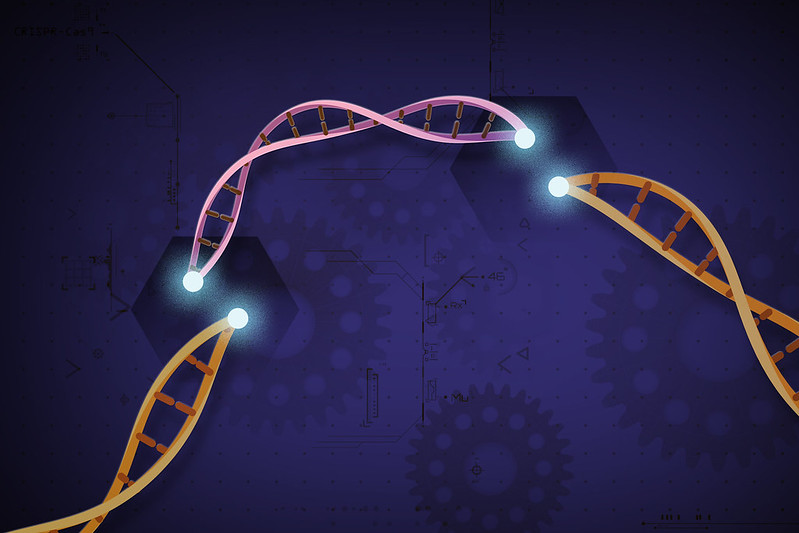Discovered only about a decade ago, CRISPR Cas-9 enables rapid development of exciting new treatments—and more breakthroughs are on the way, today’s new episode of the I am BIO Podcast explains.
So, what exactly is CRISPR?
Regeneron Executive Director Leah Sabin says that CRISPR Cas-9 technology modifies DNA using an RNA guide to find a single gene, paired with a Cas-9 nuclease that cuts the gene.
“Once the guide RNA sees its match, it can bind and signal to the protein, the nuclease, that it’s time to create a cut. And so, the nuclease is controlled. It will not cut unless it gets that exact match, that will tell it, it has permission to cut,” she explains. “And that’s a huge advantage, because, control of where exactly the nuclease cuts, particularly if you’re editing a human genome, is essential.
Regeneron uses CRISPR to alter the liver’s DNA to address transthyretin amyloidosis, a genetic condition causing dangerous protein buildup around the heart by snipping out a gene. Regeneron’s David Gutstein adds that it also uses an innovative approach to insert genes, rather than cutting them, to address hemophilia.
Julie Bruno of CRISPR Therapeutics talks about her company’s work, including conducting clinical trials on eight therapies (so far). One of these is a promising sickle cell treatment.
According to Benjamin Oakes, new delivery methods for CRISPR, developed by Scribe Therapeutics, reach the liver or central nervous system effectively. He co-founded Scribe Therapeutics with CRISPR pioneer Jennifer Doudna. He explains how his company is making advances with CRISPR and talks about what it’s like to work with the inventor of the technology.
“Working with Jennifer is an eye-opening experience, because she brings an incredible holistic view,” he says. “Jennifer understands, not only the details of the specific biochemistry, because that’s where she’s been focused for a very long time now, but also just the implications of what these incredibly small and detailed experiments mean, at a much broader and grander scale.”
Oakes says there is still much to learn, and podcast host Rachel King, the interim CEO of the Biotechnology Innovation Organization (BIO), agrees.
“There’s still a lot we don’t know about CRISPR’s potential as a tool for transformative therapeutics,” says King. “But one thing is for sure, we should be excited about where CRISPR’s going and the possibilities that lie ahead.”




